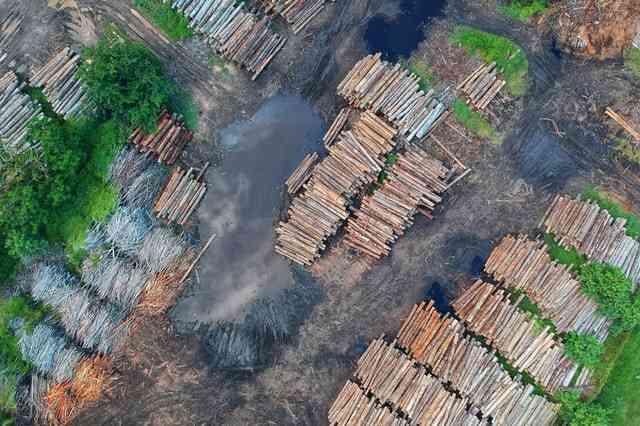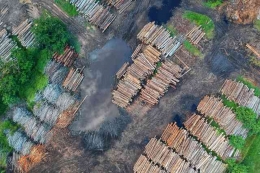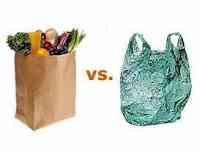The unsustainable forestry practices associated with pulp and paper operations have led to adverse impacts on some of the world's most ecologically significant places and species. Unsustainable pulp and paper operations have contributed to the conversion of high-conservation-value forests, illegal logging, human and social rights conflicts, and irresponsible plantation development. Given the global nature of the pulp and paper sector, paper from these unsustainable sources can reach markets in North America. Indonesia has faced massive deforestation over the past half-century, primarily driven by palm oil plantations and timber logging. By the end of the 1990s, it was estimated that the country had lost 72 percent of its vast and once-intact natural forests (Carlile, 2023).

"Corruption facilitates tree felling, leading to conflicts with local communities, land acquisition, and wide scale fires. The surge in pulp and paper production intensifies deforestation, fires, social conflicts, and confrontations with wildlife. This increased demand for pulp escalates global prices, prompting substantial investments in new pulp mills". Additionally, paper bag and packaging production necessitates significant water and energy, resulting in heightened carbon emissions. The process involves chemicals and bleaching agents, posing a threat of water pollution, further jeopardizing ecosystems and communities.
Transitioning to alternative packaging materials may seem like an easy solution, yet a comprehensive sustainability approach requires a critical examination of the entire life cycle of these products. Reusable bags made from recycled materials or other sustainable sources offer a more environmentally friendly option, reducing the need for continuous production and mitigating environmental impact. From 2010 to 2060, global pulp and paper consumption is estimated to double, paralleled by an increase in paper waste. This escalated paper production will further strain the already critically compromised global forests, aggravating the situation. From 2001 to 2019, a total of 386 million hectares of forests were lost globally, encompassing all types of forests (The World Counts, n.d.).
Truly addressing climate change and safeguarding the health of our planet demands significant shifts in consumer behavior and industrial practices. Embracing reusable options, advocating for responsible sourcing and production, and promoting a circular economy model that reduces waste and prioritizes conservation are crucial steps towards a more sustainable future.
In conclusion, while paper bags and alternative packaging may seem environmentally friendly, their production and environmental impact require careful scrutiny. Genuine sustainability involves mindful consumption, responsible production, and a holistic understanding of the impact of our choices on this planet. It's crucial to seek alternatives that minimize ecosystem damage, preserve biodiversity, and contribute positively to climate change mitigation.












